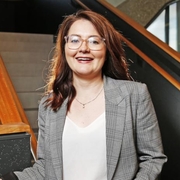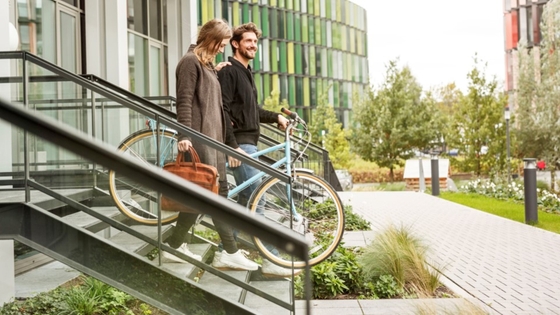
Q&A with Associate Professor Seana Gall
About Professor Seana Gall
Prof Seana Gall is a cardiovascular epidemiologist at the Menzies Institute for Medical Research, University of Tasmania. Her research is dedicated to understanding and preventing cardiovascular diseases such as heart attacks and stroke. She does research to identify their causes and develop innovative prevention strategies. Prof Gall and her team explore risk factors and evaluate interventions including using mobile phone apps and online education tools to improve cardiovascular health outcomes.
With a background in physiology and anatomy through a Science degree at Monash University and a PhD in stroke epidemiology from the University of Melbourne, Prof Gall has been based in Hobart, Tasmania, since 2008. Her experience living in a regional area has provided her with unique insights into the cardiovascular health challenges faced by regional and remote communities.
What are you currently researching?
My 2024 Future Leader Fellowship research project uses epidemiological methods to better understand and prevent cardiovascular diseases. Epidemiology includes observational studies where we look for – patterns and trends about cardiovascular disease in large datasets. My research also uses interventions epidemiological methods to test new interventions to prevent cardiovascular disease using mobile phones and online learning. A key focus on my research is using co-design, ensuring that people most affected by cardiovascular disease are directly involved in shaping the research and interventions.
What difference will your research make to people’s cardiovascular health in Australia?
My research aims to:
- Identify new prevention targets across the life course, from childhood to adulthood.
- Develop and evaluate digital health tools that enhance public awareness and self-management of cardiovascular risk.
- Address cardiovascular health disparities in regional and remote communities, where disease burden tends to be higher.
As a strong advocate for consumer involvement in research, I will be working closely with people who have lived experience of cardiovascular disease. This ensures my work is directly relevant and can be effectively translated into practice.
What motivated you to do your research?
My passion for cardiovascular research began when I was in university. While there, I was interested in understanding how the body worked, with much of this focused on the cardiovascular system and brain. I also enjoyed the research process of deeply understanding a problem, defining the research question, designing the study and then getting the answer.
During my PhD I worked on a large study where I interviewed people that had had a stroke 5 years earlier to understand how their lives had changed.

Hearing their stories and learning about the diversity in people’s lives after stroke made me passionate about finding ways to prevent stroke and improve life for those affected after stroke. Today, working closely with people and communities impacted by cardiovascular disease keeps me motivated to find better solutions for prevention and care.
Professor Seana Gall
Research Fellow
Are there any recent achievements or discoveries you can share with us?
I recently completed my first randomised controlled trial as the lead investigator. We tested the use of a mobile phone app called the Stroke Riskometer to see if it helps people better understand and manage their risk of stroke. We recruited over 850 people across Australia and New Zealand, even during the challenges of the Covid pandemic – this was a huge effort! We are now in the process of analysing the data from this trial, which will form part of my Heart Foundation Future Leader Fellowship over the next few years.
Can you tell us about the impact of Heart Foundation funding in your career journey?
The Heart Foundation plays a crucial role in supporting cardiovascular research in Australia. Their funding has allowed me and my team to continue doing our vital work in preventing cardiovascular diseases. Securing funding for medical research is one of the great challenges in Australia’s research sector. The Heart Foundation’s investment ensures that we can keep making important discoveries, develop new prevention strategies, and improve heart health everyone in Australia – now and in the future.
You might also be interested in...

Improving the prevention and management of stroke
Focus will be on understanding recently identified changes in the incidence of stroke in younger people and women, as well as the divergence in cardiovascular health between men and women across the life course. Together, these studies will inform better interventions to prevent stroke.

Research funding portfolio
Understand the application process and requirements of our various funding programs.

Applying for research funding with the Heart Foundation
New funding opportunities for 2025 are now available. Learn more about our funding programs, requirements, and application dates now.
Last updated09 April 2025
Last reviewed07 April 2025
